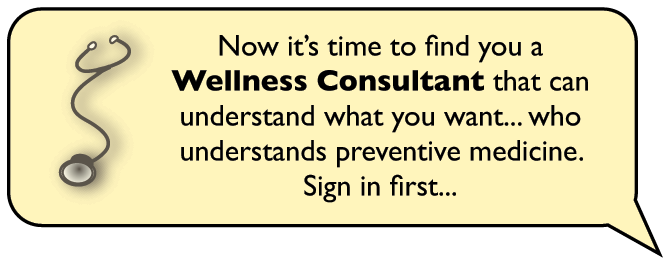More than just vitamins and minerals, some foods require low pH in the stomach to be completely digested. If pH is too high (too alkaline) the stomach will be unable to dissolve the bonds that hold various food components together. For instance, protein from animal sources can be quite difficult to digest. Red meat is a particularly tough because the protein found in the meat is wrapped in a sheath made of collagen. The stomach acid must first break through this collagen before enabling the liquefaction of the protein inside. Only when a stomach enzyme, called Pepsin is activated can protein from meat be fully digested. Pepsin will not activate if stomach pH is too alkaline. pH needs to drop below 4 for Pepsin to ‘crack’ the collagen barrier.
The most perceptible mark for insufficient acid production is when eating red meat. If, after consuming a sizable portion of read meat – say, around 6 or more ounces, the meal doesn’t sit well, then underproduction of stomach acid is a distinct possibility. A feeling of fullness, heaviness, or tiredness may occur. This signals a phenomenon known as hypochlorhydria. If this sounds familiar...
If eating steak is not a problem, stomach acid appears to be working its magic...




For those who have occasional stomach discomfort: nausea, burping, aching, or burning, the solution is often to reach for an antacid. Antacids work by lowering acid production or by neutralizing acid in the stomach. Alternative sources of acid neutralizers can be found in the following common food sources: carbonated beverages, milk, and bicarbonate (like baking soda). If acid is the problem, the discomfort usually goes away soon after these food sources or after antacid treatment.
If antacids don’t work, the problem is likely something else, like infection, a toxin, or it could be something neurological. In other cases, trapped gas or congestion in the belly could be pressing on the stomach, causing discomfort.
If frequent stomach problems are remedied with antacid consumption, or milk, carbonated beverages, or baking soda...
If stomach problems are rare, or do not resolve with antacids, milk, carbonated beverages, or baking soda, it is possible the protective mucous layer in the stomach is severely compromised...




The congestion of blood in the gut is soon accompanied by gas in many cases of IBS. Congestion causes nutrients and mucous caught in the intestines to leak backwards – back into the colon. Nutrients and electrolytes in the “backwashed” fluid combine with fecal matter as it passes through the intestines, collecting nutrients along with moisture. Most of the fluid collects in the colon, where scores of bacterial colonies preside.
Normally, fecal matter contains less moisture, and even fewer nutrients. This natural state limits bacterial growth, fermentation, and putrefaction.
In a hydrated state, like Irritable Bowel, excess fluid allows inherent bacteria to mix with fecal matter more, collecting more nutrients. Hence, more bacterial action creates more gas.
Do you produce large amounts of gas during or after a stressful or uncomfortable bloating episode?
Certainly, people who make a habit of eating large amounts of food have a tendency to produce more gas than others. The same applies to those who consume lots of fiber and vegetables. This is not Irritable Bowel Syndrome. If gas is more of a fiber or food volume issue, or if gas is not an issue at all...




A common side effect of long-term corticosteroid therapy is infectious Candida. Other infections of the skin and mucous membranes are similarly common. Corticosteroids are variations of cortisol, but are taken as medications – often to stop inflammation.
There are several reasons why corticosteroid therapy causes infections. The first and foremost is cortisol’s suppressive action on the immune system. What this means is any organism that lands on the skin or gets swallowed has a greater chance of invading the body undisturbed. It’s as if the immune system doesn’t even care that it’s there.
A second reason why bugs can grow unfettered during adrenal stress is hyperglycemia. High cortisol causes insulin resistance. Uncontrolled hyperglycemia has been associated with fluid and electrolyte disturbances and increase infection risk.
Lastly, adrenal stress causes the body to retain more water. Like blood sugar, trapped body water can alter the composition of fluids in all tissue compartments. People with adrenal stress also tend to perspire more. This can provide a moist environment in the crevices and folds of the skin. Perfect breading grounds for fungus.
If skin infections, like athletes foot, jock itch, toe fungus, oral thrush, or vaginal Candidiasis are recurring and/or require treatment...
If skin infections are rare...




When it seems like that thing you needed to get done yesterday is now 3rd on a growing list of things that need to be done today...
Most of you reading this book – presumably – have graduated from puberty. Perhaps many remember other graduations: High School, College, maybe more? Looking at these accomplishments retrospectively is different than living the experience. Many would agree: glad to have been there, but would probably pass up the opportunity to do it again.
Now that we are older (and perhaps a little wiser?), how are we shaped the experiences of the past? The pressure to fit in and the struggle for independence during puberty; the never-ending demands of course work at High School and College.
How have things changed?
Is there a feeling as if something always needs to be done or that there are always tasks yet to complete?
If agendas and “to-do” lists are not an issue or are rarely a big deal...




Highly stressed people often complain there is never enough time to relax. Instead, we think about our kids, our work, financial issues or, worse yet, feel guilty for taking time out of the day for ourselves. We have become a society of preoccupied, pseudo-important, workaholics.
There is a pervasive fear among most that there won’t be enough savings to retire on, that some tragedy will happen and the nest-egg will disappear. Or, that one of the kids will rebel and throw away opportunities the rest of the family worked so hard for. It never seems to end. Every decision, it seems, is weighed upon by consequences that couldn’t possible be accounted for.
These pressures affect just about everyone. Even the rich find ways of imagining worst-case scenarios. So, if these are universal concerns, how can we possibly find ways live care-free? Care-free people seem to have a lot more fun.
Care-free, happy people have all the same risks. The difference is: they realize it’s more painful to worry about something that’ll never happen.
An apt quote: “You can’t prepare for every disaster. Even when you do, you’re never ready for it when it actually happens. So why bother?”
Judging from prior sections, look’s like you’re pretty care-free... sensible, but care-free...



Adrenal Stress
Cortisol is the universal stress hormone. It is an essential hormone for the control of the fight/flight response. This hormone is responsible for mobilizing sugar during times of stress – freed from non-essential tissues around the body so that it can be carried to the brain. Once there, the sugar is used to fuel strategies for fight or flight. ADRENAL STRESS is the overproduction of cortisol such that it can borrow too much sugar from tissues, causing hyperglycemia and subsequently insulin resistance. Cortisol doesn’t just steal sugar from tissues, it breaks down protein build new sugar molecules. Long-term effects of high cortisol begin to show as osteoporosis, osteoarthritis, and muscle atrophy – all protein catabolic disorders.
Adrenal Stress is also accompanied by high levels of aldosterone. Aldosterone causes the body to retain water and, of course, in excess it can cause hypertension. Hypertension is a risk factor for cerebral aneurisms and hemorrhage. Long-term cerebral hypertension, along with cortisol-induced hyperglycemia can cause cognitive deficits and may also aggravate psychological imbalances.
ASK YOUR DOCTOR ABOUT TESTING
24-hr Urine Complete Hormones gives a detailed perspective on adrenal hormones and their metabolites. This test will show evidence of adrenal stress (high cortisol and high aldosterone). The Individualized Optimal Nutrition Profile is a comprehensive test for numerous metabolic imbalances, including vitamin deficiencies, neurotransmitter metabolites, and amino acid neurotransmitter precursor deficiencies. The Comprehensive Serum Profile blood glucose and serum lipids. Elevated fasting blood sugar and triglycerides may reflect insulin resistance from adrenal stress.
Now you have the confidence to walk into your next doctor’s appointment knowing what to ask about... what to hope for in terms of expectations. This is, by no means a guarantee of a conclusive finding, but at least it helps you and your doctor make the best of your time together – to get you both organized so that communication is clear and the goal is concise.
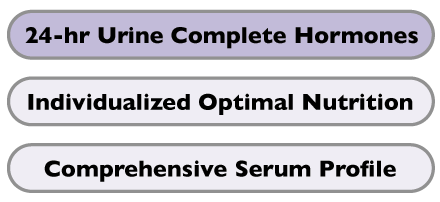
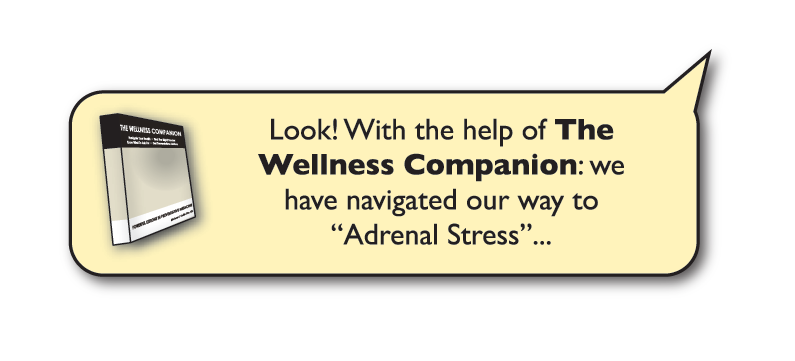

YOUR DOCTOR MIGHT CONSIDER...
Depending on results from LAB TESTING, your doctor may consider the following prescription formulations. Keep in mind, there is no way to know what treatment you need, if you even need treatment, without first getting the right lab testing done and consulting with a physician before and after the lab results are in. This information is simply a list of prescriptions and supplements to ask about. Final judgement is in the caring hands of your health practitioner.
SUPPRESSIVE TREATMENTS...
For immediate relief of anxiety, benzodiazepines can be prescribed on an “as needed” basis. Benzodiazepines are not recommended for long-term use. Antidepressants have also been used classically for stress, especially for those patients with low serotonin and dopamine. Doses of prescription antidepressants vary and require extensive trial and error to find the right drug and the right dose. Depending on priority, hyperglycemia may require an oral hypoglycemic. If blood pressure is elevated, consider treating with an Aldosterone blocker, like Spironolactone. These are suppressive medications intended to be used short-term while work is being done to improve diet and lifestyle.
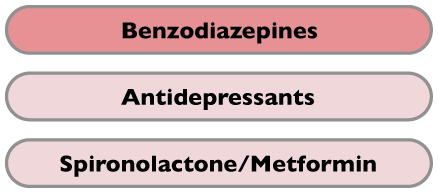
PREVENTIVE TREATMENTS ...
Phosphatidylserine has been shown in studies to lower cortisol levels and rehabilitate the brains sensitivity to cortisol. Adaptogens like Eleutherococcus, Rhodiola, Scutelaria, and Melissa work on the brain’s interpretation of stress – lowering the stress response, even when cortisol levels are high. Another adaptogen specific to adrenal stress is Crataegus. It is unique, in that it works specifically to normalize blood pressure. Some herbal hypoglycemics, like Gymnema and Lagerstroemia help by increasing peripheral tissue sensitivity to insulin, while opposing the hyperglycemic effects of glucocorticoids.
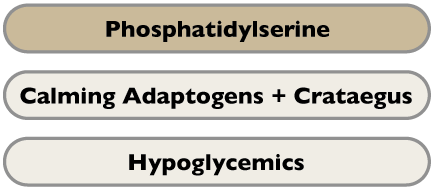
DIET & EXERCISE
Begin with regular aerobic exercise. Increasing circulation and developing aerobic capacity helps feed muscles oxygen and relieves acidosis. Activities like this stabilize blood sugar, reduce high blood pressure and provide “beginner” conditioning.
Fructose (AKA high fructose corn syrup, HFCS) has recently been linked to disorders that cause blood pressure to rise. HFCS is even more tightly associated with obesity and diabetes – each disorders of blood sugar. Both issues take on more weight when associated with Adrenal Stress. Dietary strategies to keep blood pressure and blood sugar under control are essential for healthy brain function.
Much of the controversy tying sodium to high blood pressure may in fact have as much to do with low potassium intake as it does to high sodium. Modern industrial dieting has a much higher ratio of sodium:potassium than whole, fresh foods, like vegetables, fruits, and untreated meats and grains. Eating proportionately higher whole food sources may rebalance the ratio of sodium:potassium and improve both blood sugar and blood pressure.
A low carbohydrate diet helps the adrenally stressed on two levels. It keeps blood sugar more tightly regulated (normoglycemia rather than hyperglycemia) and it helps the body better regulate water. High blood sugar has a natural tendency to stimulate the release of aldosterone when it reaches the kidneys – it’s an inherited trait from our caveman ancestors to keep the body from losing essential nutrition while feasting after a length of famine. In today’s world, it causes the adrenally stressed to retain water.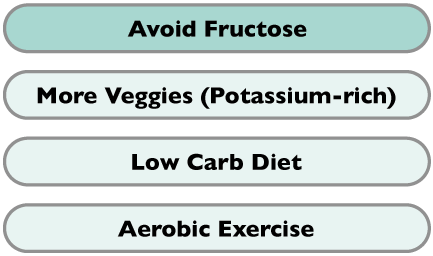
WHAT TO DO NEXT...
For the next month, work with your doctor to formulate a plan to rehabilitate the brain and adrenal function. Then, re-examine this book with a fresh set of eyes. Start from the beginning and answer all of the questions as best you can. If cognitive function improves, you will skip this section and move on to new ground. Perhaps another area that needs work. If not, you will, once again, arrive in this section or one similar to this with as yet unresolved cognitive and adrenal issues. Don’t worry! Keep working, and in time you and your doctor will work through this so that you can re-try a month later. Soon enough, you’ll be so healthy, this book will no longer be needed.
